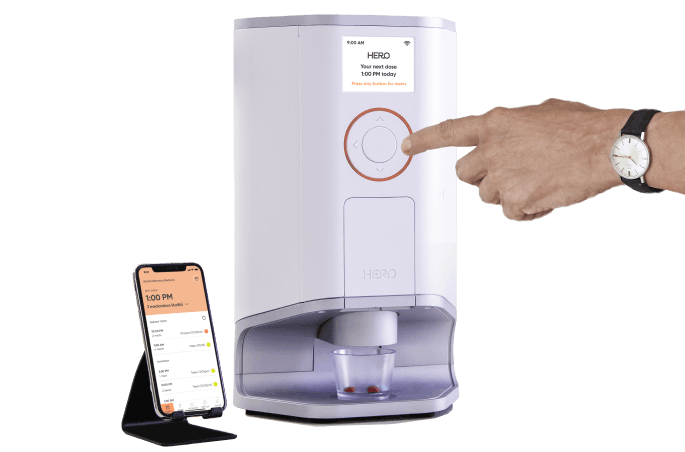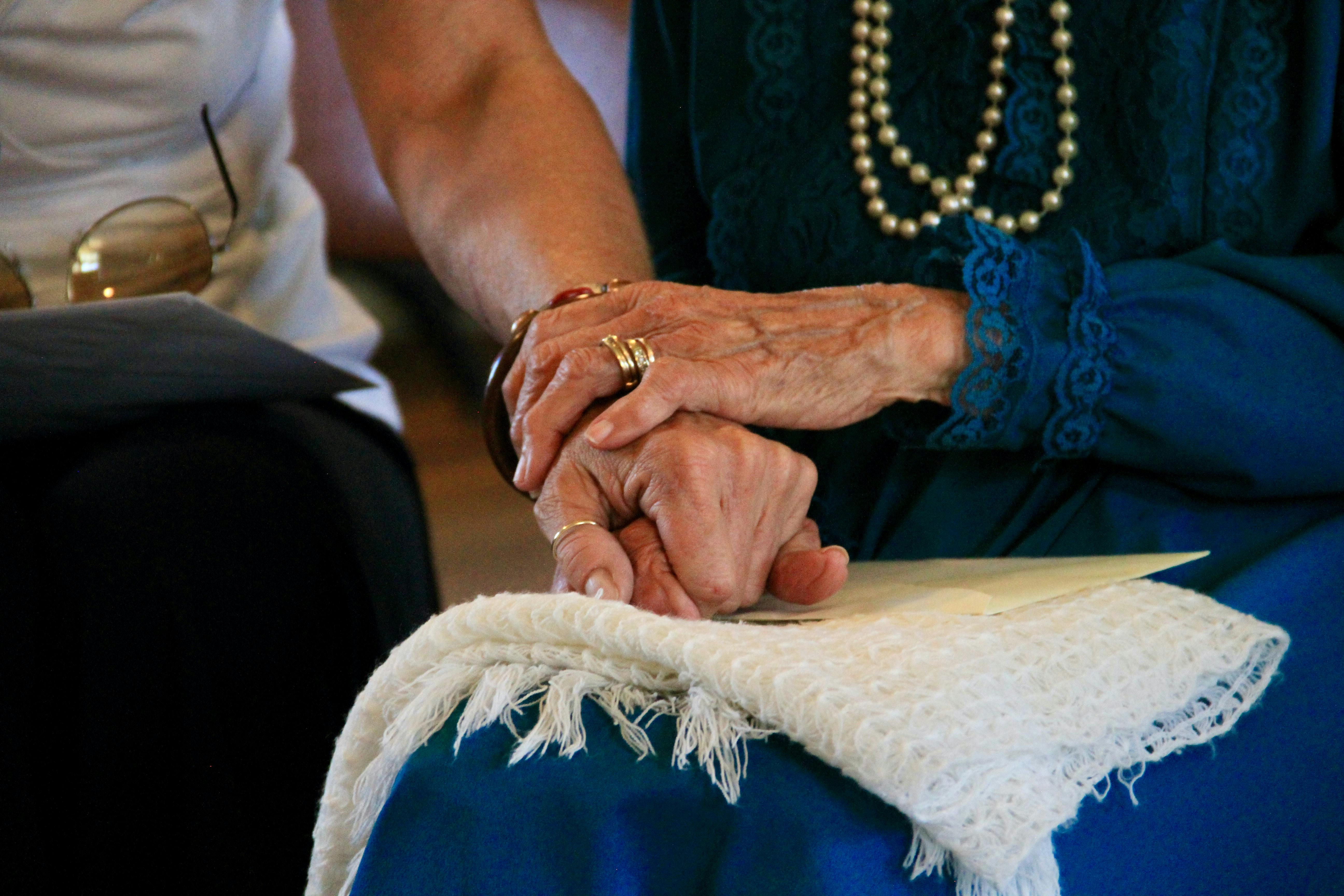The Power of Human Connection on the Patient Journey

If you’ve been diagnosed with a chronic condition, your healthcare provider may have laid out a care plan for you. If so, your plan likely outlines steps to minimize your symptoms and optimize your prognosis, such as taking your medications each day, attending regular check-in appointments, and undergoing any necessary treatments or procedures.
In addition, your provider may have emphasized the importance of lifestyle choices and other habits that can aid in your recovery or ongoing condition management. These might include eating nutritious meals, exercising often, and getting quality sleep each night. All of these are important contributors to long-term health outcomes.
But something is missing from typical care plans. They do a fair job of encompassing physical and mental health, but what about social health?
Social health is the dimension of well-being that comes from connection and community, and research indicates that it may play an instrumental role in determining the course of your condition. Therefore, every care plan should highlight the importance of strong relationships with your care team and quality time with loved ones.
The Impact of Social Support on Health Outcomes
In recent decades, researchers have explored the interplay between patients’ social ties and their health trajectories, with promising results across numerous types of conditions. After being infected with a common cold virus, for example, socially supported people develop less severe symptoms, indicating that relationships may protect and strengthen our immune systems. This is also true for more serious diseases; for instance, head and neck cancer patients––many of whom experience changes in speech and facial appearance––show significantly better speech and aesthetics, as well as overall mental health, if they have more social support.
In one study, people with ovarian cancer lived longer if they had greater social attachment, which was defined as emotional connection to others. Interestingly, those with varying levels of instrumental support, meaning they received tangible assistance from others, showed no difference in survival—suggesting that there may be something uniquely beneficial about emotional bonds. As a result, the authors recommended that providers screen patients for social deficits and implement activities to enhance support as a complement to traditional care.
Further reinforcing this recommendation, researchers at Brigham Young University recently analyzed the findings from over 100 randomized controlled trials, spanning over 40,000 patients with cardiovascular disease, cancer, and other conditions. Patients who received social support in addition to standard medical care were 20 percent more likely to survive and 29 percent more likely to survive longer than patients who only received standard medical care.
Other examples of the healing power of connection come from individuals navigating mental illness. Investigators found that people who had higher quality relationships with family and friends exhibited fewer symptoms and were rehospitalized fewer times in the three years following their first experience of psychosis. Likewise, the quality of people’s social relationships predicted depression outcomes over a two-year period, above and beyond variables like physical comorbidities, economic disadvantages, and alcohol abuse.
The Body’s Pathways to Healing
In the face of this evidence, you may be wondering why connection affects health. How can other people change what goes on in your body?
Several pathways could point the way. One is psychological. If you are navigating a diagnosis and feel like you have people to help you along the way, you are likely to benefit from greater self-efficacy and fortitude. For instance, in a study of people with multiple sclerosis, resilience mediated the link between social support and mental health. In contrast, feeling like you have to go on the journey alone might trigger anxiety, stress, and loneliness, all of which are detrimental for health.
Another pathway through which social support influences health outcomes is behavioral. Close relationships give you access to information and resources that you might not otherwise have and influence your beliefs and behaviors through social norms. In turn, you act differently.
Consider how your health behaviors might be impacted by a neighbor who lets you know about a free vaccination site nearby, a friend who invites you to go running together every weekend, or a pharmacist who takes the time to explain your prescription. Conversely, if your family members refuse to get vaccines, your coworkers smoke cigarettes, and your doctor downplays your concerns, your health behaviors will likely still be influenced—but for the worse. In particular, we can see this play out in the context of physician-patient relationships where effective communication leads to better health through increased access to care, better patient knowledge, higher quality medical decisions, and greater patient empowerment.
In turn, these psychological and behavioral pathways can trigger physiological responses. For instance, social support is associated with lower blood pressure, reduced cortisol levels, fewer inflammatory proteins, and more oxytocin––all factors which directly influence health outcomes.
Which Relationships Matter Most?
Now that you understand the impact of social support on health, it’s time to put this insight into action. Thankfully, support can come from a variety of sources, so patients don’t have to—and perhaps shouldn’t—rely on one person. The following three kinds of social ties are especially important along the patient journey:
Your Healthcare Provider
Imagine a physician who is warm, friendly, and empathetic. They listen intently to their patients when they describe their concerns, call them by their name, and follow up after visits. Now imagine a physician who is cold and impersonal. They interrupt their patients, treat them as inferior, and rush through appointments.
Is it any surprise that the former’s patients fare better than the latter’s? Even if the physicians’ medical knowledge and practical skills were equivalent, their rapport with patients would still matter. Each interaction shapes a patient’s trust, understanding, and satisfaction. In turn, it influences whether or not they will comply with the provider’s instructions, want to show up to subsequent check-ins, and feel confident in their ability to manage their chronic conditions. Inevitably, these factors will affect their health outcomes.
The data backs up this line of reasoning. For instance, a systematic literature review concluded that the patients of empathetic physicians feel more satisfied and enabled, experience less anxiety and distress, and show significantly better clinical outcomes. Likewise, another review indicated that the quality of therapeutic alliances, or the relationship between therapists and their patients, is consistently linked to patient outcomes.
If you are a clinician of any kind—doctor, nurse, therapist, or other—there are steps you can take to be intentional about building rapport with your patients. A study of primary care doctors points to three key approaches:
- Value patients by being nonjudgmental, seeing them as people instead of cases, and giving them your full attention.
- Empower patients by educating them and engaging with them as partners.
- Show commitment through caring actions and an ongoing, long-term relationship.
Your Inner Circle
Family members, friends, and significant others are core sources of support. One study found that patients whose friends and family were there for them before, during, and after joint replacement surgery had shorter hospital stays and better discharges. A meta-analysis concluded that adherence to medical regimens was 1.74 times higher in patients with cohesive families—those who show warmth, acceptance, and closeness—and 1.53 times lower in patients with divisive families. Similarly, support from spouses has been linked to short- and long-term recovery.
As the loved one of a patient, recognize the role you can play in their journey and ask how they would like to be supported. Or as someone living with a chronic condition yourself, view quality time with your inner circle as a necessary part of your health routine and prioritize it accordingly.
Your Fellow Patients
Connecting with other people who share your condition and know firsthand what it’s like can be transformative. Patient support groups, whether online or in person, provide emotional support by making you feel seen, heard, and understood. While one-on-one relationships are important for social health, so are broader communities and networks that we belong to, and patient support groups may confer this sense of belonging. Moreover, they can be a useful source of practical aid, with members sharing lessons and suggestions.
A simple Google search of your condition and “patient support group” will likely yield numerous options, nationally and perhaps locally too. Many disease advocacy organizations host meetups for patients, or you could try a community such as PatientsLikeMe, which connects over 830,000 people with over 2,900 conditions.
These insights about the power of human connection on the patient journey might seem like age-old wisdom, yet we still have a long way to go to incorporate them into the US healthcare system and the everyday patient experience. If you live with a chronic condition, or care for someone who does, consider how you can include social health as part of your long-term care plan.
Kasley Killam, MPH is the founder of Social Health Labs, where she partners with cross-sector organizations on local, state, and national initiatives to reduce loneliness and improve social well-being. She holds a master’s from the Harvard T. H. Chan School of Public Health.
Complex med schedule? We solved it.
Hero’s smart dispenser reminds you to take your meds and dispenses the right dose, at the right time.

The contents of the above article are for informational and educational purposes only. The article is not intended to be a substitute for professional medical advice, diagnosis, or treatment. Always seek the advice of your physician or other qualified clinician with any questions you may have regarding a medical condition or its treatment and do not disregard professional medical advice or delay seeking it because of information published by us. Hero is indicated for medication dispensing for general use and not for patients with any specific disease or condition. Any reference to specific conditions are for informational purposes only and are not indications for use of the device.






